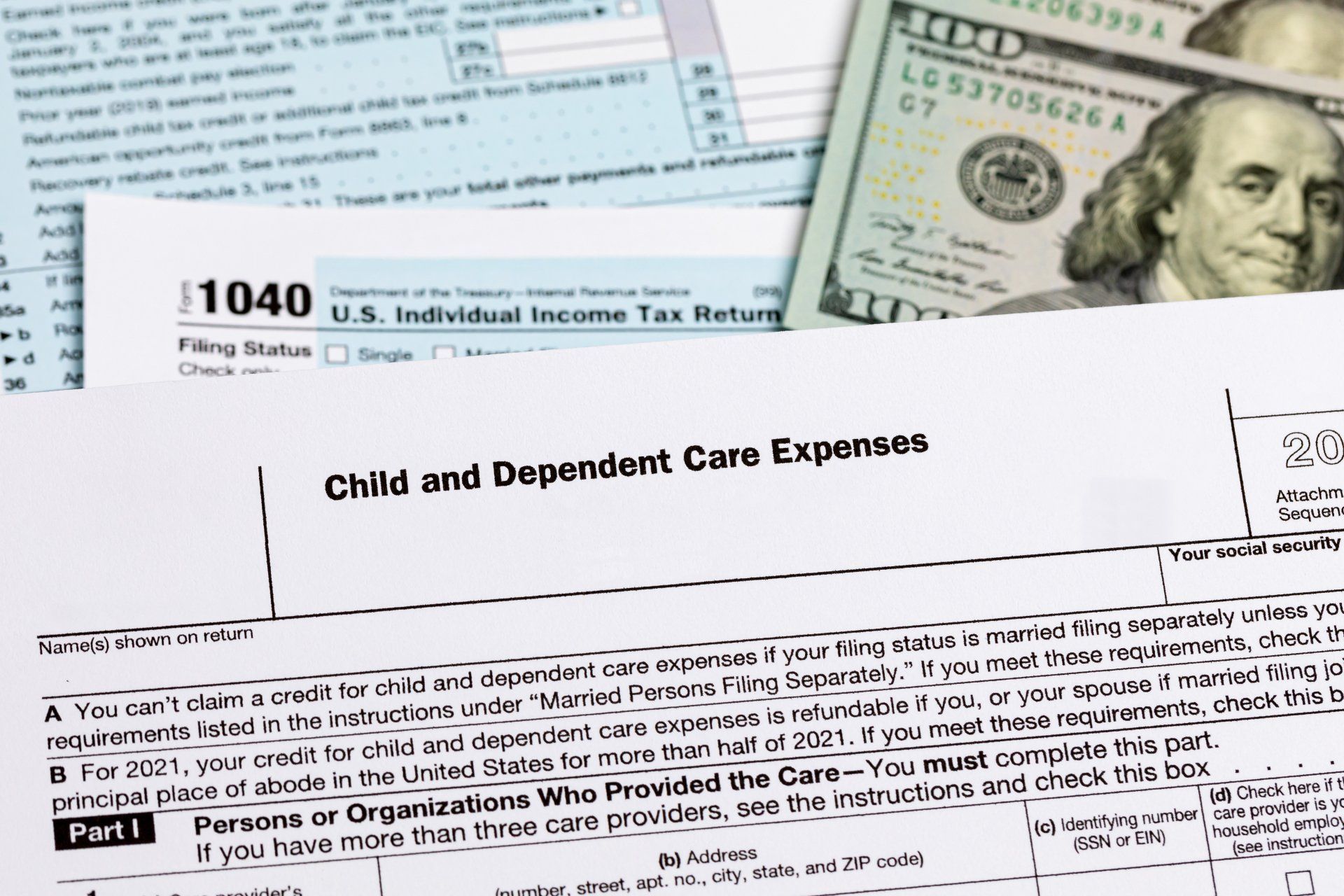Attorneys at Law
Blog Layout
The Accidental Bigamist
Patrick McClure • November 16, 2015
Why it is so vital to make sure you get and keep your records in a Divorce
I was asked recently how changes in Kentucky’s marriage license forms could affect issues arising from subsequent marriages. I believe ultimately the Legislature will need to revise the language authorizing the various County Clerk’s offices to issue the licenses, but for now using the phrase “The Office of the Boyle County Clerk”, or whatever County it may be, would suffice. In point of fact, the elected Circuit Clerk or County Clerk rarely signs documents or licenses anyway, as that is almost always handled by the Deputy Clerks who greet you at the window.
However, in looking at the question I was reminded of another issue that can arise. The form asks if the applicant has been married before, but there is little other verification that the prior marriage has been dissolved by death or divorce. A person who knowingly misrepresented that fact on a marriage license request would be signing a false affidavit, and when the marriage occurs, be knowingly engaged in Bigamy, a crime in all 50 states.
In Kentucky, while some marriages are “voidable”, others are “void ab initio” meaning there were never given the full effect of law. There is a famous case out of Western Kentucky where the parties had tendered all documents and agreements to finalize their Divorce, including waiving any claim they might have against the Will or other Estate of the other party. Kentucky continues to recognize the rights of “Dower and Curtsey”, which means that even if a man purports to leave the wife out of his will, she can still “elect against the will” as to a great portion of the Estate (and the same would be true of the wife’s will). Unfortunately, in the case in question, one of the parties died before the Judge entered the Decree divorcing them, meaning they were still married in the eyes of the law at the time of Death. The story of unintended consequences ensued, and ultimately the surviving spouse received out of the probate estate far more than she ever could have in the Divorce, to the loss of the other heirs, including the children of the party who died.
But theirs was not the only Decree that had gone unsigned, for one reason or another. It is very possible that other people, reasonably believing they were Divorced, could have remarried. They couldn’t really be guilty of a crime, as they obviously had no intent, or even knowledge, of what they were doing. However, since that subsequent marriage would be void on its face, any purchase of land, application for a loan, filing of a joint tax return, or a myriad of other actions would now also be jeopardized. They were bigamists, accidental bigamists, but bigamists nonetheless.
So how can a Decree be delayed, and how do you protect yourself from problems when a Decree has not been entered?
Obviously the easiest and best answer here is to not do anything until you receive a copy, entered by the Circuit Clerk, of a “Final Decree of Dissolution of Marriage” showing the signature of the Judge hearing the case.
But to ensure you actually get that document there are a few things you can do to help yourself:
PARENTS EDUCATION CLINIC, FAMILIES IN TRANSITION
If you have children, most Family Courts will Order you to attend a Parent’s Education Clinic of some kind. This is usually a short, even one-time, course designed to help divorcing couples understand the effects the breakup can have on the kids, and how to minimize those issues. (I’ll discuss those on another day.) Once that Order is entered, in most Counties the Judge will not sign a Decree until at least one of the parties has attended the class. You, your spouse and the attorneys may have agreed on every possible issue and tendered all documents to get Divorced, but with no certificate of one or both parties completing the “PEC”, the Decree may linger in the Judge’s office, unsigned and un-entered in the Court record, until the certificate is filed. The parties would still be married until that Decree is entered.
PATERNITY TESTING or PREGNANCY
Kentucky law does not allow a Divorce Decree to be entered while the wife is pregnant. When the parties are married at the time of birth of a child, the Husband has legal rights, and is the legal father until proven otherwise and an Order is entered. If the wife is or becomes pregnant during a divorce, regardless of the length of separation (except in extremely rare instances) the Court must determine by some proof, likely DNA testing, that the Husband is not the father. Again, this can cause a Decree to be “tendered” and awaiting signature for significant lengths of time, running the risk that you forget to follow up on the status, and believe you are Divorced, when in the eyes of the law you are not.
NOT STAYING UP-TO-DATE BY SOMEONE
You may have heard the story about four people named Everybody, Somebody, Anybody and Nobody. There was an important job to be done and Everybody was sure that Somebody would do it. Anybody could have done it, but Nobody did it. Somebody got angry about that, because it was Everybody’s job. Everybody thought Anybody could do it, but Nobody realized that Everybody wouldn’t do it. It ended up that Everybody blamed Somebody when Nobody did what Anybody could have done.
In all cases where you are dealing with legal issues, you want to be sure that you stay in touch with your lawyer, the Court, and other parties. The Circuit Court Clerk (as opposed to the County Clerk) will always need your up-to-date address. The Child Support Office, and any Court Order regarding Child Support will advise you that you must keep them up to date with your address, occupation, employer, and income.
Things can fall through the cracks. It is one of the reasons you hire a lawyer to assist you in legal proceedings, even when you think you understand all the issues logically. The legal process has certain rules that may not be known or make sense to the average person. Yes, that is also one reason people tell such great lawyer jokes, but it is also why you want someone who is going to be vigilant in making sure the rules are followed. We, nor any other office, can guarantee you a result in a case. Judges and Juries make those decisions. We can help you make sure your case is given the attention, and the follow up, it deserves.
If you have questions about any legal matter you may be facing, or simply want to confirm that what you think has happened is actually on the record, feel free to give us a call
at 859-236-8888. We are here to serve you.

By Brian D. Bailey
•
July 15, 2022
https://www.youtube.com/watch?v=86DwHBCoLp0#t=207m27s If the link doesn't automatically take to to the video . Please cut & Paste to you browser Hey everyone out there now you can see us during our appearances on the Joe Show. Click on the link here to see why my momma always said I had a face made for radio. And for my law school peeps listen close for a painful law school memory when we discuss the "Absence of Malice"

By Brian D. Bailey Esq.
•
June 28, 2022
Parents who are divorced, separated, never married or live apart and who share custody of a child with an ex-spouse or ex-partner need to understand the specific rules about who may be eligible to claim the child for tax purposes. This can make filing taxes easier for both parents and avoid errors that may lead to processing delays or costly tax mistakes. Only one person may be eligible to claim the qualifying child as a dependent. Only one person can claim the tax benefits related to a dependent child who meets the qualifying child rules. Parents can’t share or split up the tax benefits for their child on their respective tax returns. It’s important that each parent understands who will claim their child on their tax return. If two people claim the same child on different tax returns, it will slow down processing time while the IRS determines which parent’s claim takes priority. Custodial parents generally claim the qualifying child as a dependent on their return. The custodial parent is the parent with whom the child lived for the greater number of nights during the year. The other parent is the noncustodial parent. In most cases, because of the residency test, the custodial parent claims the child on their tax return. If the child lived with each parent for an equal number of nights during the year, the custodial parent is the parent with the higher adjusted gross income. Tie-breaker rules may apply if the child is a qualifying child of more than one person. Although the child may meet the conditions to be a qualifying child of either parent, only one person can actually claim the child as a qualifying child, provided the taxpayer is eligible. People should carefully read Publication 504, Divorced or Separated Individuals to understand who is eligible to claim a qualifying child. Noncustodial parents may be eligible to claim a qualifying child. Special rules apply for a child to be treated as a qualifying child of the noncustodial parent. The custodial parent can release the dependency exemption and sign a written declaration or Form 8332, Release/Revocation of Release of Claim to Exemption for Child by Custodial Parent for the noncustodial parent to submit with their tax return. This also applies to some tax benefits, including the child tax credit, additional child tax credit, and credit for other dependents. It doesn’t apply to other tax benefits, such as the earned income credit, dependent care credit or head of household filing status. For More information: Check out IRS Publication 501, Dependents, Standard Deduction, and Filing Information Whom May I Claim as a Dependent? If you have questions or need help navigating which parent gets to claim the children for tax purposes. Feel free to Give us a call at 859-236-8888.

By Brian D. Bailey Esq.
•
June 17, 2022
It is with mixed emotions that we announce our very own justin Johnson has decided to take a position working as Assistant Commonwealth attorney for the 50th Judicial Circuit. We are sad to see him go but are comforted with the fact that we know he will bring his integrity and brilliance to this next chapter of his life and that maybe in some small way we contributed to that. Also we are proud to know that he will in a very real way be carrying on the tradition of this firm's founder Hon. George M McClure III by serving this area while ensuring both the victims and accused receive justice and fair play.

By Brian D. Bailey Esq.
•
May 31, 2022
Both Patrick & Myself come from a long line of men and women who have bravely & honorably served this country. Both of our fathers George M McClure III & John L Bailey. Our Grandfather’s Dr. George M McClure Jr., Clarence E. Bailey and Claude L. Stacey. As well as many of our aunts, uncles and cousins have all bravely and honorably served this country some of them came home to take there place in society never really discussing their service nor asking for any special treatment because of it. Some came home in a box. draped in a flag, having paid the ultimate sacrifice. I never had the honor of serving myself. I had intended to serve. I even made the trip from Rockford Illinois to Great Lakes Naval base to take the ASFAB which I actually did very well on. However the day before I was going to sign my enlistment papers my father sat me down and said these words to me that forever changed the course of my life. He said “Son our family has done its fair share for King & Country go to college” I took my dad’s advice and I have honestly had a life that is greater than I could have ever imagined. But I have always felt a little guilty that I didn’t serve like most of the men in my family chose to do. Memorial Day is always bitter sweet for me, because I realize that I am in a very personal way the recipient of the sacrifices made by Generations of my family that served sacrificed and died so that I wouldn’t have too. I know I’m not the only one who has benefited from that type of sacrifice I know many of you out there reading this have stories that are very similar to mine. So tomorrow while we are all enjoying our hot dogs, hamburgers and mom’s apple pie let’s all take a moment to remember the ones that sacrificed so that we wouldn’t have too. Have a Happy and Thankful Memorial Day. ---- Brian
This Is An Advertisement
Area of Service
Boyle, Mercer, Lincoln, Garrard, Casey, Marion, Rockcastle, Washington, Anderson, and Jessamine Counties
Business Hours:
- Mon - Fri
- -
- Sat - Sun
- Closed
Content, including images, displayed on this website is protected by copyright laws. Downloading, republication, retransmission or reproduction of content on this website is strictly prohibited. Terms of Use
| Privacy Policy










